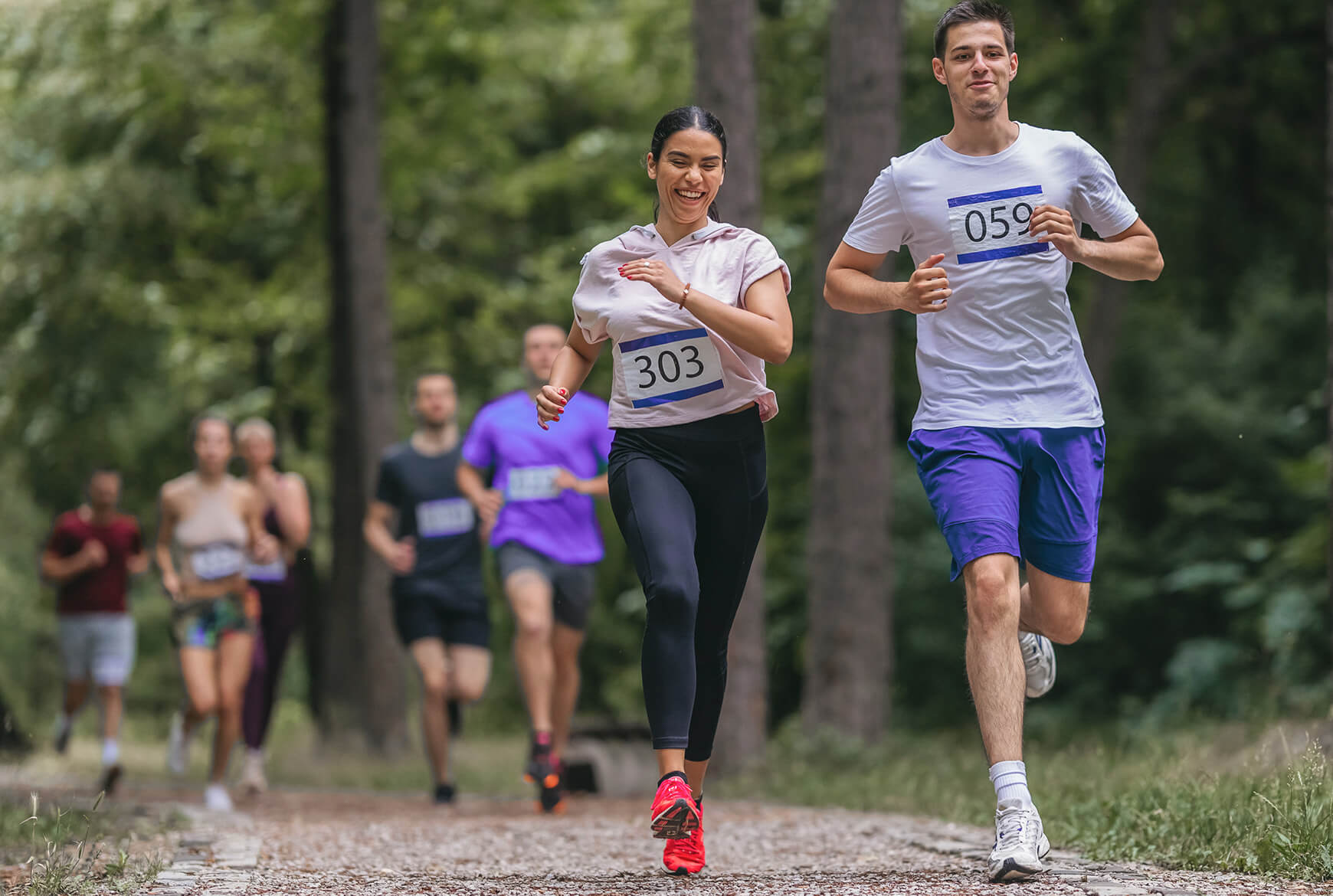Get active and socialize: a winning combination!
It’s well known that being active is good for your health. While the beneficial impacts of any kind of physical activity have been well documented, researchers have been trying to determine for the last 20 years if practising an organized sport or exercising with a group is even more beneficial. Their gut feeling appears to be right.
Consider the positive influence that others can have on your personal motivation. There’s an undeniable domino effect. When you’re ready to give up and call it a day, your mates can boost your morale and infuse you with a burst of energy to go another round. They encourage you to keep your eye on the prize and carry on. They create the momentum you need to follow through with the commitment you’ve made to yourself.
However, group influence is only one factor impacting our ability to persevere. Indeed, several studies have shown that the act of being in a group has an even more marked impact on mental health. Getting moving with others can provide even greater protection against anxiety and depression. According to American researchers, people who chose to participate in a group physical activity reported 26% less stress, and mental, physical and emotional improvements of 12.6%, 24.8% and 26% respectively. Their counterparts who trained alone? No noticeable reduction in their level of stress and a limited impact on their quality of life. This was the case even if they had spent twice as much time on their activity.3
Why the significant difference? The social factor. In other words, team sports are a prime opportunity to develop a sense of belonging. They provide the perfect conditions for building lasting friendships and forging bonds that draw on mutual support and group cohesion, key conditions for success. These two factors help build self-esteem and contribute to a sense of achievement.
Solid foundations for youth
Youth score an even bigger win when they add a group physical activity to their lifestyle. Why? Well, teammates, coaches and other caring adults around them create a protective bubble in the form of a social network. This bubble can help shield them from suicidal thoughts and depression because the social support network is one of the main determinants of mental health.4
It makes sense that kids who belong to a sports team are less isolated. They can feel more socially accepted than their peers who practice an individual sport or none at all. They can also gain stronger self-esteem because they’re motivated by a sense of individual and team accomplishment. Many social and non-technical skills come into play that help them reach their full potential.
These factors have a greater influence on mental health than the amount or intensity of physical exercise. And better yet, these effects tend to last for years, well into adulthood.
For the young at heart
For older people, getting active with a group provides the perfect antidote to loneliness. Taking part in regular aquafit, dance, tai-chi or walking sessions, for example, are all opportunities to interact and make friends. These relationships contribute to their mental health and reduce the risk of depression. These benefits are in addition to the recognized effects of physical activity on cognitive health.
Develop life skills
Team sports set the scene for youth to develop a range of personal skills that will contribute to their lifelong development. Group activities give adults a chance to hone their skills.
- Communication – This is key to practicing a team sport, whether it’s grasping and understanding various cues or chatting with teammates, other players, refs, coaches.
- Teamwork – Members of a team have to cooperate to achieve a common goal. Over time, young athletes learn how to deal with a variety of personalities and scenarios. They develop their ability to adapt, persevere and be patient.
- Respect and sense of responsibility – Team sports teach individual and collective responsibility. Recognizing each team member’s individual strengths promotes mutual respect.
- Emotional flexibility – Wins and losses build resilience and increase every team member’s ability to better cope with emotions.
101 ways to get moving in a group
Playing rep sports isn’t the only way to benefit from the group effect. You also don’t need to have access to a broad social network. There are so many ways to get moving. What about:
- Checking if there’s a walking club in your neighbourhood or municipality, or even in your workplace.
- Looking for organized activities at the community centre or browsing through all the courses offered in your area.
- Finding a local sports club: soccer, tai-chi, dragon boat, volleyball... there’s usually something for all tastes!
- Being the first domino and getting a group activity started in your workplace: running or walking group, Zumba sessions, etc.
- Signing up for a sporting challenge that brings people together: marathon, charity run, boot camp, etc.
In conclusion
Team sports are a great way to boost health benefits. Being part of a sports team has a positive impact on mental health and also feeds motivation and promotes consistency of effort. Social connections and a feeling of belonging offer protection against stress, anxiety and depression.

